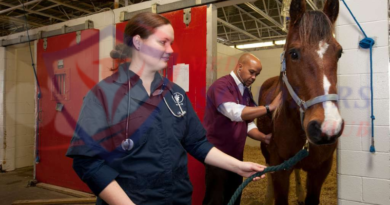Studying Medicine at A Private University: Should You or Not?
High-quality studies, easy admission conditions and extremely high tuition fees: These are the general prejudices that prospective students have about studying medicine at a private university. However, these prejudices are not always correct. If you are thinking about studying at a private university/college, then you should think intensively about the topic and find out about all the important aspects.
In the USA, there are currently six private universities/colleges that offer medical studies. The big advantage of applying to one of these universities/colleges: The average Abitur grade has less influence on admission within the selection process than when applying to a state university/college. The private institutions primarily advertise that a lot of value is placed on the personality and experiences of the applicant during the application process.
Read Also: Types of Drug Education – Course Outline & Structure
The following private universities/colleges offer medical studies in the USA:
- Harvard University
- University of Pennsylvania
- Johns Hopkins University
- Washington University
- Duke University
- Columbia University
- Stanford University
- Yale University
- University of Chicago
- Vanderbilt University
Applying to a private university/college
Due to the high number of applicants, the application process at private universities/colleges is very complex. If you don’t have a perfect high school average, you have to show in another way that you are motivated to start studying medicine and become a doctor.
The first option is the letter of motivation. All six universities/colleges require their applicants to submit a letter of motivation. Here the applicant must convince the commission that he/she is suitable for studying at this institution.

Another criterion for admission to a private university/college can be taking the Test for Medical Studies (TMS). This way you can prove that you are comfortable in the field of medicine and already have some basic knowledge. In order to be able to assess your knowledge in the natural sciences, some universities/colleges also attach great importance to the fact that you have not dropped out of the biology and/or chemistry subjects before you graduate from high school.
As already mentioned, private universities/colleges like to advertise that the personalities and practical experiences of their applicants play a major role in the application process. The required internship duration is four weeks. Practical experience includes not only nursing internships, but also the voluntary social year, medical-related training and stays abroad.
An indispensable part of the application process to a private university/university is the personal interview. During the interview, the selection committee would like to get to know you and find out what your motivations are, what medical specialization you are aiming for and whether you are suitable for your future career. The committee usually consists not only of lecturers from the university/college, but also of students and representatives from practice.
Unfortunately, applying to a private university/college is not free like it is to state universities/colleges. The processing fees for applying to such an institution vary between 150 and 250 dollars.
The costs at a private university/college
High costs – that’s what students expect from studying at a private university/college. But applicants should not let this deter them. Sometimes studying at a private university/college may be the only way to fulfill your dream of studying medicine.
To this day, many applicants wait for their study places – for years. During this time, the main thing you have to do is stay afloat financially. That’s why many future students start working in a professional field related to their course of study. Even if the salary as a waiting person without a university degree is much lower than after studying medicine, this time brings with it a lot of professional experience and a regular monthly income. It is advisable to start saving for private studies during the waiting semester, as the tuition fees at some private universities/colleges can be very high.
If the student or his/her family cannot bear the costs of such a private course of study, there are various options for assistance with financing.
Read Also: Which Type of Illness Do Oncologists Specialize In
The scholarship
There are various scholarships in the USA. They differ based on the requirements that the applicant must meet. The advantage of scholarships is that you do not have to pay back the money you receive. Medical scholarships are often only awarded after successfully completing the physics exam and usually only to those interested in certain subject groups. A scholarship can often entail certain obligations after your studies, e.g. B. the choice of university/college or field of study is limited by a contract. Some private universities/colleges also offer partial or full scholarships to suitable applicants.

The student loan
If you have few financial resources, you have the option of applying for a student loan. What scares many people away is the obligation to the bank for the next few years. However, by supporting a student loan, you have much more freedom during your studies and have to worry less about financial matters.
In order to apply for a student loan, applicants must meet the following requirements:
- The student must be in their first degree
- Age: under 30 years
- Study at a state-recognized (with accreditation) university/college
- Full-time study
Different regulations apply to foreign citizens.
The student usually does not have to start repaying the loan until one year after the last payment. This reduces the pressure to find a suitable job immediately after graduation. While the interest rate is usually fixed every six months, the monthly installments remain flexible. If desired, these can also be increased in order to pay off the loan more quickly.
Read Also: How to Write a Convincing Letter of Motivation!
Free Application for Federal Student Aid (FAFSA)
Even if you start studying at a private university/college, you can still be entitled to FAFSA as a student. All students at universities/colleges that offer state-recognized degrees can apply for funding under the same conditions. The following also applies to students at private universities/colleges:
- The upper age limit for funding is 30 years (at the start of your studies)
- Parent-independent FAFSA is only available in exceptional cases
- Students who exceed the standard period of study lose their entitlement to funding (there are exceptions here too)
- A change in subject area may be made no later than after the third semester for a legally recognized reason
Unfortunately, tuition fees cannot be paid using FAFSA. However, it is possible to report the tuition fees as a hardship case and thereby receive more FAFSA.

Advantages and disadvantages of studying at a private university/college
Before you apply to a private university/college, you should be clear about the advantages and disadvantages of studying. We have put together a small list for you:
| Advantages | Disadvantages |
| High School grades are hardly taken into account when applying | Very complex recording process |
| Degrees are often recognized outside of the USA | Stays abroad possible (can also be an advantage) |
| Good facilities (rooms, media, etc.) | Commitment possible with financial support |
| Smaller student groups make the learning process easier | High tuition fees |
| Studies begin in both the summer and winter semesters | Foreign language skills are often required during your studies (can also be an advantage in the end) |
Final Thoughts
Starting your medical studies at a private university/college is an attractive, but still expensive alternative, especially when it comes to the application process. Although there are numerous options for financial support, there is unfortunately always a certain risk of becoming heavily indebted at a young age. In this case, you should be 100% sure that you really want to study medicine.




